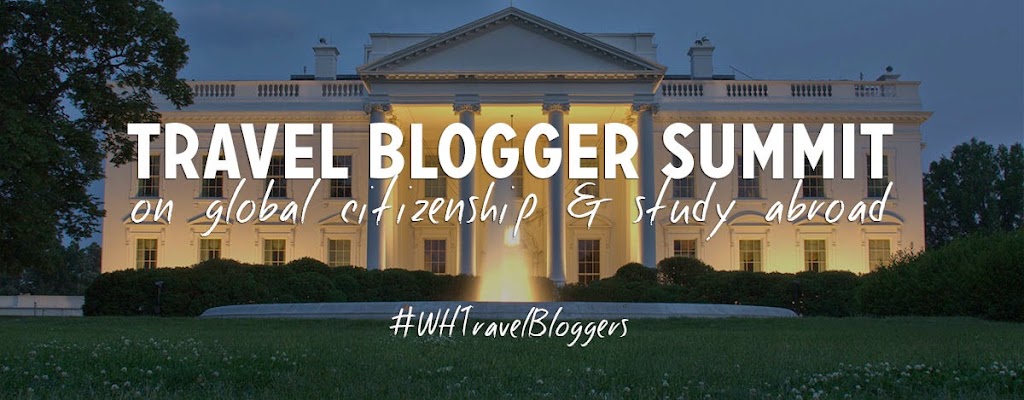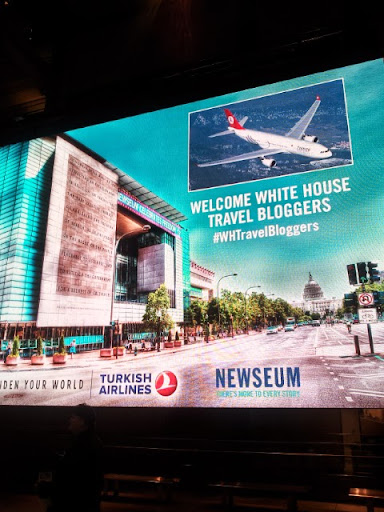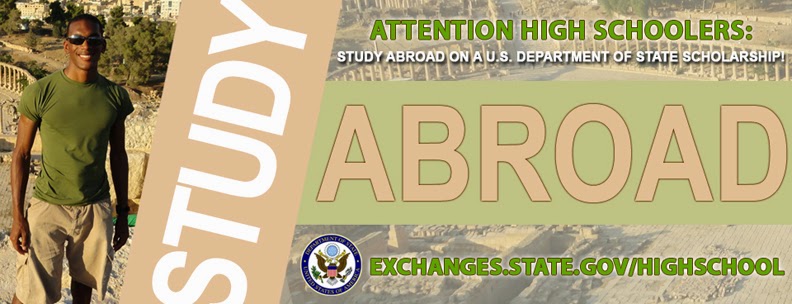I truly believe that international education can change the world. From studying abroad, hosting exchange students, working abroad, doing international internships, taking international classes, learning languages, taking a gap year, asking questions and learning about people’s lives, and traveling, there is a plethora of ways to learn about people, places, cultures, and ways of being in the world. But first, it takes a spark of curiosity, an eagerness to learn, and a willingness to explore and embrace difference.
I first traveled overseas as an exchange student to Japan, in the 8th grade. Our family loves travel of all kinds, so our lives were full of international goodness, friends, food, music, languages, and culture. I love, love, LOVE learning about other people, and you will often find me talking to everyone I see, everywhere – from a doorman to a cab driver to a store clerk to students (of course, to students!). I followed this up with my own international education – a BA in international economics, a MA in cross-cultural adaptation, and a PhD in international education, focusing on study abroad. I was the director for the MSU London study abroad program one summer, and it highlighted, firsthand by over 350 students, their stories and lives, how important study abroad is: global citizenship is the key to international understanding.
Study abroad and gaining international experience are critical to citizens of the world today. In order to compete in the international economy, we need to have an educated, well-traveled, resilient population.
I’ve worked in international education for 20 years, and nothing brought home the critical nature of our work as much as an event this week did. I was honored to be invited, as one of the top 100 travel bloggers and digital influencers, to head to Washington, DC, for the White House Travel Bloggers Summit on Study Abroad and Global Citizenship.

Let me tell you how seriously this administration is taking international education – the summit (arranged by Fran Holuba of the Global Engagement/NSC Press, National Security Council) was packed with senior officials speaking on the importance of study abroad, international education, student mobility, and more.

Speakers included the Chief of Staff to the First Lady, the Chief of Staff to the President, the Deputy National Security Advisor, the Assistant Secretary for Education and Cultural Affairs, the Director of Social Innovation, and the Secretary of Commerce.
And while the topic has been simmering for a while, it was really given a kick by First Lady Michelle Obama, who spoke in China earlier this year about the importance of study abroad.
The picture is bleak, and that’s why we need change. Students want to study abroad, but can’t afford it, don’t know about options, or are in fields where study abroad is less traditional. Did you know that only 1.5% of US students study abroad (while 50% want to!)? Much work has been done by NAFSA, including the Senator Paul Simon Study Abroad Act, which works to make global education part of every US student’s degree program (and includes a wide range of students (gender, ethnicity, income, and field of study) as well as non-traditional study abroad locations).
But we as a country and citizenry need to do more – and realize that study abroad is not the only option to gain international experience. People of all ages can learn through work abroad, global internships, taking a gap year, teaching abroad, working with the Peace Corps, and traveling with curiosity.
Can I just say? I loved this summit and the importance this administration is placing on international education.

Author Rolf Potts, WE publisher Jessie Voigts (yours truly), and Transitions Abroad Publisher Greg Hubbs at the White House summit a bit early, before the room filled
The summit focused on three key areas, all of which we’ve written about here on Wandering Educators, seen on Transitions Abroad, NAFSA, IIE, etc., and will continue to write more about as we increase our participation in international education:
-
Studying, Volunteering, and Working Abroad as a Civic and Economic Imperative
-
Pushing Greater Diversity of Travelers, Destinations, and Fields – Pushing through the Barriers
-
Cultural Exploration

While I have over 20 pages of tightly written notes from the Summit (you can't take the academic out of the girl), and I'll share more soon, here are two important highlights from the summit:
From Secretary of Commerce Penny Pritzker:
This summit focuses on two issues near and dear to my heart:
• How can we create a better future for our young people by increasing their opportunity to learn about the world and economy in which they will compete; and
• How the growth of travel and tourism in the United States is critical for our economic success.
I believe that understanding the many norms and business practices outside of our country – and valuing and learning from diverse peoples and cultures – strengthens our nation and our economy.
As a parent, I have encouraged my own children to travel abroad – not simply for fun, but to develop greater cultural sensitivities and appreciation for the beautiful mosaic that is our world today.
I know that my children and I are blessed to have the ability to travel. Not every American has this same opportunity. It is my hope, though, that more Americans – and especially more of our young people – can have that same experience.
Indeed, travel outside our borders can add a new dimension to a person’s social and cultural intelligence – and one’s knowledge of how people abroad interact and do business with one another.
Travel abroad helps a person understand that norms and practices may be different in Accra or Athens or Beijing or Buenos Aires; but we are all tied together by a basic human connection. Our similarities vastly outnumber our differences.
In this day and age, more and more employers want to hire people with a true “world view” – with the adaptability and openness that comes with having experienced other cultures.
In fact, a MetLife survey found that 65 percent of Fortune 1000 executives identified global awareness as “very important” or “essential” in order to be ready for a career.
As a nation, we should be doing everything we can to encourage more of our young people to experience far-off lands, because exposure to destinations and people outside the United States can have a profound effect on one’s perspective.
Through travel, a young person can learn firsthand the rhythm of daily life in another country; the nuances of other cultures; and how business is conducted in different communities across the planet.
Through travel, Americans can interact with their peers and counterparts beyond our borders, meeting people face-to-face to exchange ideas and insights.
Through travel, all of us – from the United States or elsewhere – can come to appreciate one another’s customs, backgrounds, and traditions, ultimately making us more willing and able to find common ground.
This is why international education can be so important – why we should encourage more students to study and work abroad.
This is why we should work together – in business, government, and academia – to afford more young Americans the opportunity to travel, to deepen their cultural fluency, so they can better compete and succeed in the 21st century.
And from Assistant Secretary of State for Educational and Cultural Affairs Evan Ryan:
As Edward R. Murrow famously said, “The real crucial link in international exchange is the last three feet, which is bridged by personal contact, one person talking to another.” Travel is the means for getting to the last three feet. Travel opens doors for young people to cross socio-economic, cultural, and geographic borders, to engage in people-to-people connections, to increase mutual understanding, and to collectively solve global challenges.
The United States is a global leader in many fields, including in higher education, and one of our goals at the State Department is to help ensure that young Americans—our next generation of leaders—have the international skills they want and need for a globalized 21st century workforce.
American students face many real and perceived constraints to studying abroad. They may be hesitant to take leave from the universities and colleges where they study, fearing a loss of progress toward degree completion. For those who rely upon income derived from employment, both the short term loss of income as well as potential increased cost of education for study abroad may prove daunting. It is always difficult to say goodbye to family and friends, who may worry about your safety and security. It is also intimidating to navigate daily life in a foreign culture and language, and students may also express concerns about missing out on events and activites while away from their home campuses. Nevertheless, we firmly believe that encouraging American students to study abroad is a strategic imperative for the United States, and responses from students returning from study abroad experiences validate the importance of study abroad on a more personal level as well.
Why must more Americans study abroad? It is crucial for our country’s next generation of leaders to travel, live, work, intern or volunteer abroad in order to gain the skills needed to understand and operate within the global political and economic landscape of the 21st century. It is in America’s national interest, writ large, to build and sustain a globally minded and internationally literate workforce, not just for government, but for private industry and society more broadly.
At the Department of State, we want to increase the overall number of Americans studying abroad, and do so by better reaching parts of American society that are currently underrepresented. We desire to see more young people travel to destinations where fewer Americans have studied, and to learn critical languages like Arabic, Chinese, Hindi and Russian.
Americans who study abroad become unofficial ambassadors for our country, defining American values and debunking stereotypes. They gain critical perspectives and begin to establish networks that enhance their individual prospects in the global marketplace and their future potential as global problem-solvers. We send over 7,000 Americans – from high school students to college students to young professionals -- abroad on our exchange programs each year.
Our National Security Language Initiative for Youth and Critical Language Scholarship programs offer U.S. high school and college students fully-funded intensive summer language institutes overseas in a number of critical foreign languages like the ones I mentioned before. Through these programs, we are focusing on the acquisition of valuable linguistic skills, while also imparting cultural knowledge and encouraging the development of networks.
Our Benjamin A. Gilman International Scholarship Program targets populations traditionally underrepresented in study abroad by offering scholarships for academic studies or career-oriented internships abroad to U.S. undergraduate students who receive Pell grants. The Gilman program breaks those troubling diversity barriers I mentioned earlier with 56 percent of Gilman Scholars representing ethnic minority groups and almost 40 percent the first in their families to go to college. Over 70 percent of Gilman Scholars studied outside of Western Europe and an equal number studied a language, often a critical language, during their program.
The Fulbright U.S. Student Program is sending a record number of American students overseas this coming year. These recent college graduates, graduate students, and early career professionals will conduct research in large cities and small villages across the globe, engaging with local citizens and becoming part of the fabric of their overseas community, while also gaining important linguistic and cultural skills. The Fulbright Program continues to innovate and find new ways to engage talented, highly motivated Americans early in their careers. The new Fulbright-National Geographic Digital Storytelling Fellowship will allow fellows to research and share narratives on globally significant issues through new media platforms, hopefully encouraging the next generation of student travelers.
Study abroad is often considered the pivotal event of many young people’s lives. It is the moment that the world is opened up to them and that many of their preconceived notions are turned upside down. It is a time of great discovery—both of the world and oneself. Having studied abroad myself, I can personally attest to the transformative experience of studying outside of your own country and comfort zone. While we are proud of our role in supporting over 7,000 Americans who receive scholarships from State Department programs each year, we we are only the leading edge in fostering and responding to interest in today’s globally-minded students.
With this recognition, I am pleased to announce that we are establishing a new U.S. study abroad office, which will manage some of our premier study abroad programs and advocate alongside the broader community for the benefits of study abroad, including to students, parents, faculty and administrators at colleges and universities, private sector representatives, and many others. We are also excited to announce our partnership with the Institute of International Education and CollegeWeekLive to launch the first ever Virtual U.S. Study Abroad Fair that will be taking place on February 25th on-line and everywhere.
We are fully engaged in expanding study abroad opportunities to American students throughout the country. Our partners in the business and non-profit sectors, many joining us here today, can contribute as well.
Let’s think and work creatively together to share the values of study abroad for our workforce and society, to encourage young people to gain a global perspective as part of their studies, and to make the most of the talented and globally minded individuals who have benefitted from study abroad by hiring them and working with them to solve our social and economic challenges.
Will you, wandering educators, join me in promoting international education and global citizenship?
- Hop on twitter, using the hashtag #StudyAbroadBecause.
- Share your international experiences with others, especially young people (and for you college student/wandering educators reading, your peers!).
- Share and utilize over 100 scholarship programs for international education
- Work to make connections with your universities and partner universities overseas, for exchanges and study abroad programs.
- Work in study abroad yourself – take your students overseas, and open the world to them!
- Share resources and reasons to study abroad, take a gap year, do an international internship, pursue international education in a myriad of ways.

- Learn another language.
- Encourage every student to gain international experience.

Help to raise the international IQ of yourself and those you work with.
Cultivate a curiosity about the world, and share that with your kids, students, and everyone you know.
Participate in International Education Week and other global education events.

- Read travel writing, travel blogs, watch global tv shows and movies, cook international foods, host an exchange student.
- Befriend international students and scholars.

- Teach your kids the importance of global citizenship.
- Travel, travel, travel.
It can be easy – and together, we can change the world.
As Secretary of Commerce Penny Pritzker notes,
We need your help to get the word out. You have the ear of students and families across our country, and we need you to make clear:
• Why it can be in a young person’s best interest to spend time beyond our borders; and
• Why it is in our national economic interest to be fully engaged and knowledgeable about cultures and people across the globe.
We need you to tout and reinforce the economic importance of travel and tourism – and of connection. And we need you to help us ensure that everyone, at home and around the world, knows that America’s doors are open for visitors, open for students, open for growth – and open for business.
How can you help?
Interested in reading more about the Summit?
Read more from my fellow travel influencers:
http://www.forumea.org/white-house-summit
http://www.aroundtheworldl.com/2014/12/12/study-abroad-because/
http://girlgonetravel.com/2014/12/11/follow-white-house-travel-blogger-summit//
http://hollywoodonthepotomac.com/?p=53272
http://angieaway.com/2014/12/15/study-abroad-because-white-house-travel-blogger-summit/
http://www.huffingtonpost.com/mehdy-ghannad/travel-bloggers-attack-th_b_6320792.html
http://www.huffingtonpost.com/britt-hysen/millennial-catches-travel_b_6348980.html
http://www.teachingtraveling.com/2014/12/31/travel-scholarships/
http://thebackpackerintern.com/studyabroadbecause-white-house-might-invite/
http://wanderlustandlipstick.com/2014/my-white-house-visit/
http://blog.aventuraclothing.com/2015/01/white-house-travel-blogger-summit/
http://blog.hiusa.org/five-frequently-asked-questions-from-the-white-house-summit/
http://blog.hiusa.org/and-now-from-the-summit-studyabroadbecause/
http://gobackpacking.com/summit-study-abroad/
http://www.northjersey.com/news/education/student-attends-white-house-summit-1.1174369
http://travelmamas.com/white-house-travel-blogger-summit/
http://www.eturbonews.com/53552/first-ever-white-house-travel-blogger-summit
http://mashable.com/2014/12/11/white-house-study-abroad/
https://www.yahoo.com/travel/why-does-the-white-house-want-help-from-travel-104806984947.html
http://www.politico.com/morningeducation/1214/morningeducation16383.html
http://ihec-djc.blogspot.com/2014/12/live-stream-of-white-house-travel.html
http://gobackpacking.com/white-house-summit/
http://dailytravelpodcast.com/white-house-travel-blogger-summit-miniseries/
Can STEM students study abroad? YES!
Study Abroad Summit Promotes International Education
Educational Travel: Sending your child on a teen service trip
How US Colleges Encourage International Education Beyond Study Abroad
White House Travel Bloggers Summit: A Year Later
Note: The 4-hour summit was sponsored by the US Department of State: Bureau of Educational and Cultural Affairs - thank you!

Partners included Turkish Airlines, W Hotel, Travel Channel, Capitol File Magazine, HIUSA, Baron Tours, Marriott, Millennial Train, Hyperactivate, iHeartMedia, Yahoo! Travel, the Newseum, Minerva Schools, and National Geographic Travel
Photos courtesy of Wandering Educators, Bureau of Educational & Cultural Affairs, and Jack Conroy/Turkish Airlines
